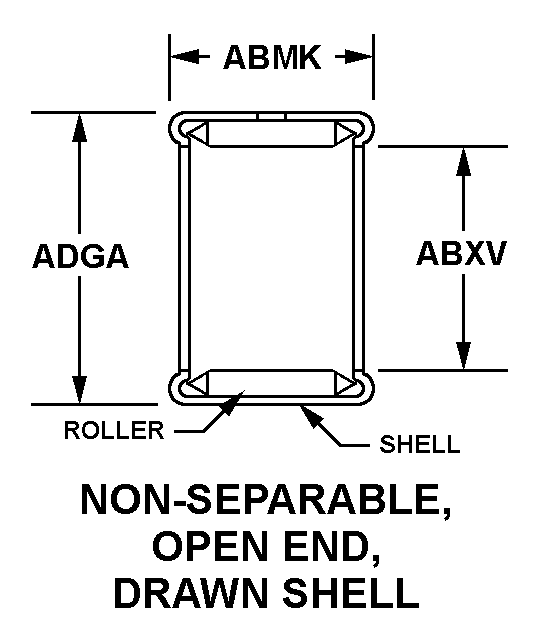3110002896606
Price Quote Get an up to date pricing and availability quote for this product. Order online or over the phone.
Quality Commitment
Serving our customers with quality and safety first.
- AS9120 Certified
- Audited supply chain
- ITAR Registered
- DDTC Registered
- HAZMAT Certified
- Customer service objectives
- Every product 100% inspected

3110-00-289-6606 Specification Set by the OEM (see RNCC code 3)
0.3025in. and 0.3125in.
0.5000in.
0.6875in.
grease
ground
rigid
afbma std tolerance for industrial needle bearings
MIL-G-23827 mil spec single material response
steel comp 1090 roller or steel comp 1095 roller or steel comp E50100 roller or steel comp E51100 roller or steel comp E52100 roller
66 fed std all material responses outer race
NON-Separable, open end, drawn shell
05606-196C795 manufacturers specification control
Cross Reference Parts Part numbers that meet the specification outlined on this page and set by the OEM
Identification Item Identification Guide (IIG) and Item Name Code (INC)

Definition Definition of approved item name (AIN): "BEARING,ROLLER,NEEDLE"
A single or multiple-row antifriction bearing used with or without inner or outer races characterized by relatively small size rollers usually not ranging above 0.250 inch (6.35mm) diameter and generally longer in length in relation to diameter.
3110-00-289-6606 Material Hazmat, Precious Metals, Criticality, Enviroment, and ESD
Indicates there is no data in the hmirs and the nsn is in a fsc not generally suspected of containing hazardous materials.
Precious metal content is unknown
The item does not have a nuclear hardened feature or any other critical feature such as tolerance, fit restriction or application.
Identification Codes
HMIC: Hazardous Material Indicator Code. A one position code that identifies a hazardous item.
PMIC: Precious Metal Indicator Code. A one position code which identifies items that have precious metals as part of their content. precious metals are those metals generally considered to be uncommon, highly valuable, and relatively superior in certain properties such as resistance to corrosion and electrical conductivity.
ESD: Electrostatic Discharge. Indicates if an item is susceptible to electrostatic discharge or electromagnetic interference damage. electrostatic discharge damage occurs when an accumulation of static electricity generated by the relative motion or separation of materials is released to another item by direct contact. electromagnetic interference damage occurs when an item comes into proximity with an electrostatic or magnetic field.
ENAC: Enviromental Attribute Code. Identifies items with environmentally preferred characteristics.
CRITL: Criticality Indicator Code. Indicates an item is technically critical by tolerance, fit, application, nuclear hardness properties, or other characteristics.






